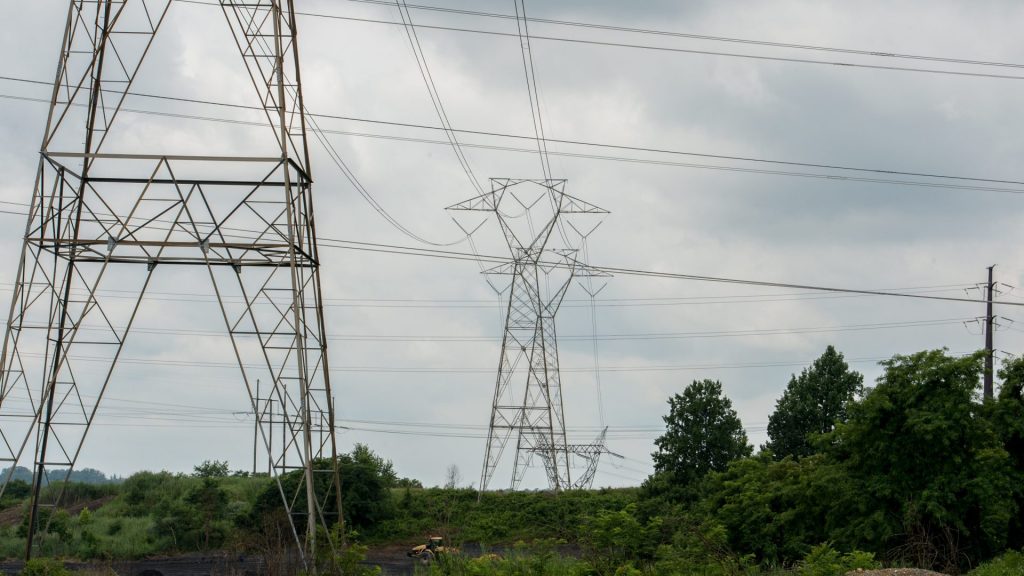Major midwest transmission line Grain Belt Express loses $4.9 billion loan

The U.S. Department of Energy withdrew a $4.9 billion conditional loan for the Grain Belt Express transmission line through Kansas and Missouri. The transmission line, intended to improve electric grid reliability, faced opposition from high-profile Republican officials and local landowners along its proposed path.
U.S. Sen. Josh Hawley, R-Mo., celebrated the move, calling the loan a “boondoggle” in a social media post.
In a letter sent to the department in June, Hawley pressured Energy Secretary Chris Wright, stating he should cancel the loan not only to save taxpayers’ money, “but also to save generational land from being ripped away from families and hard-working farmers and ranchers in Missouri.”
Transmission lines move electricity from where it is generated to where it is consumed. New lines are especially important as existing infrastructure ages and electricity demand increases. However, they are expensive and often face opposition from communities where proposed lines cut through. More transmission can also improve the value of wind and solar energy, which made the Grain Belt Express a target of Trump officials who said the Biden administration rushed the loan approval in an effort to bolster renewables.
What is the Grain Belt Express?
The Grain Belt Express is a high-voltage direct current line proposed by the power company Invenergy. The Department of Energy’s loan was intended to help Invenergy build Phase One, a 542-mile line from Ford County, Kansas, to Monroe County, Missouri. In Phase Two, Invenergy plans to extend the line across Illinois into Indiana, increasing the total length to nearly 800 miles.

The transmission line would allow regional grids to send and receive power. With a planned capacity of 5,000 megawatts, the Grain Belt Express could move enough electricity to power several million homes. It would connect the regional grids of MISO and Southwest Power Pool, as well as the smaller Associated Electric Cooperative Inc. Eventually, power could also reach the country’s largest grid, PJM.
As a direct current line, the Grain Belt Express could send power in one direction when one region experiences an excess or shortfall. The line is mainly expected to bring excess wind power generated in Kansas to population centers in Missouri and Illinois, where proponents claim it could lower consumer costs by adding low-cost energy to the grid.
Why was the Grain Belt Express controversial?
To complete the Grain Belt Express, Invenergy needs to acquire the land where it will construct towering electric lines. In February, Invenergy said 97% of landowners had made deals with the company. However, for the holdouts who wouldn’t sell, Invenergy resorted to the use of eminent domain. In this process, the government can force property owners to sell in order to build a project for public benefit.
Since 2021, Invenergy has filed nearly 40 eminent domain petitions to acquire property in Missouri, according to a report in the Missouri Independent.
Hawley became a vocal critic of the project, writing in a 2023 letter to Invenergy that the company’s actions were lowering property values and leaving farmers with less workable land. Farmers were “forced to operate under a cloud of uncertainty,” Hawley wrote, as he called on the company to increase payments to impacted landowners.
Critics also believe that the Department of Energy Loan Programs Office, under the Biden administration, approved the loan without adequate review.
In a statement announcing the loan cancellation, the Department of Energy described the $4.9 billion Grain Belt Express loan as “one of many conditional commitments that were rushed out the door in the final days of the Biden administration.” The department is currently reviewing every loan commitment made between Election Day 2024 and the beginning of the second Trump term.
How are supporters of Grain Belt Express reacting?
In a statement, Invenergy indicated that it would continue moving forward with the project using private funding.
“A privately financed Grain Belt Express transmission superhighway will advance President Trump’s agenda of American energy and technology dominance,” a spokesperson for Invenergy said. The statement also referenced growing energy demand from artificial intelligence and said the transmission line would create jobs, improve grid reliability and result in cost savings for consumers.
Invenergy is also planning to build a gas-fired power plant to connect to the transmission line, and is in discussions with another company to connect a coal power plant, according to Axios.
Jigar Shah was director of the Loan Programs Office during the Biden administration when the loan was approved. In a social media post reacting to the loan cancellation, Shah declared, “This decision is illegal.”
Shah said that when an applicant “meets all of the requirements that are set for the conditional commitment, then the Department of Energy is obligated to close the loan.” He went on to criticize the Trump administration for canceling the project while publicly stating that building transmission lines is one of its priorities.





